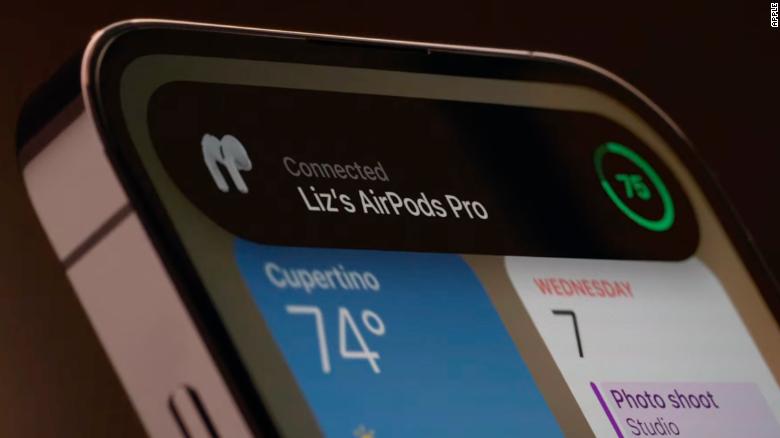
Among the most anticipated changes is the ability to edit and unsend recently sent iMessages, or mark the messages as unread if users want to revisit them later. Recipients will receive an alert that the original message was edited or deleted, and it only works if both parties are running iOS 16. Apple previously said this was among the most requested features among users.
But perhaps the biggest change is the interactive lock screen. It now features custom fonts, new photo effects, personalized wallpapers and widgets that add information at a glance. Widgets include calendar events, battery life, alarms, Apple Watch Activity rings and the weather, as well as the ability to track “live” activities, such as an Uber ride’s progress, updates on a sports game or food deliveries. (Android introduced an interactive lock screen last year).
There are also options to create multiple lock screens with different backdrops that can be switched throughout the day. Users can browse wallpapers with suggested images from a user’s photo library, and notifications will now appear at the bottom of the screen so they’re not in the way.
The updated software works with any iPhone model dating back to the iPhone 8, released in 2017. Apple previously teased the features in June at its annual developer’s conference.
Last week, Apple (AAPL) unveiled its new iPhone 14 lineup, among other devices. For customers not convinced to trade in their old iPhones for a relatively incremental upgrade — especially amid fears of a looming recession — downloading iOS 16 could breathe new life into their smartphones.
With the new updates, users will also be able to share browser Tabs with groups and find more filters for its Focus app — such as not silencing preferred apps and messages from certain people. Apple is also offering the option to use the Fitness app for movement monitoring without an Apple Watch for the first time.
And the most fun feature of all may be the ability to cut out the subject from an image or its background, and drop it elsewhere, such as into iMessage.
To download the new software, visit the Software Update section in Settings. However, the first version of next-generation mobile software updates can often contain bugs; users may want to back up important photos or files before downloading or hold off until the second version rolls out, likely in the upcoming weeks.




